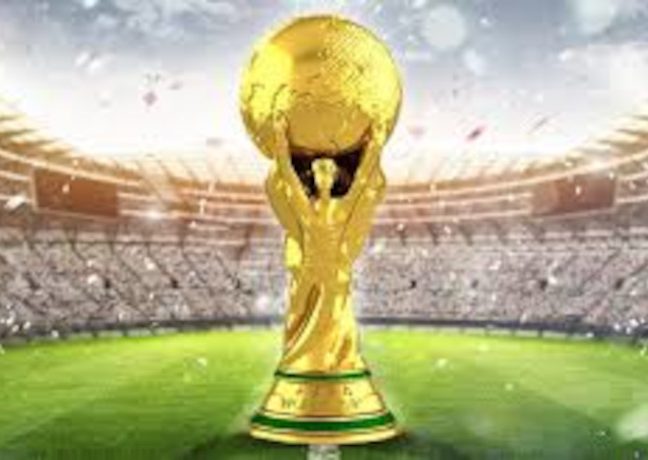
More Despicable People and the World Cup (Part Two) The Beneficiaries
January 5, 2021
African Football – A Changing World (Part One) Visions
January 12, 2021by Satish Sekar © Satish Sekar (December 28th 2020)
The Fix and its Consequences
There is little doubt that the match between Argentina and Perú in the 1978 World Cup left a bitter taste. To some it absolutely reeked. However, the full truth about the ‘fix’ may never emerge, but enough has to expose it as one of the most despicable deals in football history.
Osvaldo Ardiles played in that tournament for Argentina, but even he could not rule out the possibility that something wrong had happened. Both Ardiles and his team-mate Ricardo (Ricky) Villa won moves to England’s top-flight. Villa had no doubt that Argentina’s players were used by the junta.
Some Perúvian players and officials from that tournament accused Videla’s regime of serious threats to their welfare. Few, if any, doubt that Videla was capable of that and much worse, but there is now conclusive proof that far worse happened.
Despite his denials, strong evidence emerged that Perú’s dictator, General Francisco Morales-Bermúdez, reached a despicable deal with the late and unlamented Argentine dictator Jorge Videla Redondo. Denounced by former Perúvian Senator Genaro Ledesma, Morales-Bermúdez stood accused of trading the lives of 13 Perúvian dissidents to Videla’s demands for World Cup triumph. The second-half capitulation by Perú was to be paid for by the blood of Perúvians – it can’t get more despicable than this.
Further Accusations
The Dutch certainly suffered from Argentine gamesmanship. René van der Kerkhof had played all previous matches with a plaster cast without complaint. Argentina forced a delay by insisting on extra bandaging. They also secured a change of referee, but it could have all been for nothing.
Fine margins decide trophies. With only the keeper to beat Rob Rensenbrink hit the post in the last minute – it rebounded and Argentina went on to win in extra time, but however unlucky and unpleasant their experience may have been, Dutch complaints pale compared to Perú’s.
Argentina won and celebrated but as time passed views on Videla changed and so did Argentine opinion of the World Cup. Videla had plans for the World Cup. His junta needed success to mask the realties – the torture and murder and disappearances, some of which occurred close to the main stadium in Buenos Aires. Nothing less than winning the World Cup would do, but first Argentina had to thrash Perú. The scheduling – something that should not have required a scandal or two for FIFA to change – favoured Argentina. Brasil had beaten Poland 3-1 in the afternoon heat. Argentina would play in easier conditions, knowing what they needed to do.
Scandalous
World Cup winner Leopoldo Luque wishes in hindsight that they had not played. He says they did not know – they just played football and did so well. They wouldn’t have known. The junta had clear requirements – win at any price – and it controlled the Argentine media at the time.
The junta lied and lied and lied – that would become clear four years later as it lied about the Falklands (Malvinas) War in circumstances where a total media blackout in a foreign country was required. How would Lque and others have known in 1978? Ardiles admits that he believed the junta’s lies at the time.
But Argentina’s young coach – César Luís Menotti – insists that the victory belonged to the team. They won it for Argentineans not the military. But that doesn’t cut it for the régime’s victims. They had a long fight for justice and recognition of their ordeals. But if Argentineans didn’t know, much of the rest of the world did. The World Cup very nearly did not take place as both West Germany and the Netherlands threatened to boycott over the appalling human records of Videla’s junta.
Ludicrous
Argentina progressed to the final as did the Netherlands. There were also accusations of doping in the tournament and some of it was undoubted as at least one positive test occurred in the Argentine squad for pregnancy. There can be little doubt what that meant.
There were also accusations of intimidation of Dutch players before the final. However, nothing was proved on that and one of the best teams never to win the World Cup came second again. Even now four decades later, it still grates with Dutch supporters who believe that they were cheated. But Brasil not the Netherlands were the victims of the worst cheating – the Fix.
Dutch legend Johan Cruijff claims that he was informed that there would be a kidnap attempt on him, but Cruijff chose to retire before the World Cup Finals in Argentina. Years later it emerged that there had been such an attempt in Spain on Cruijff and his family and that affected his decision to retire from international football.
It will remain one of football’s unsolvable mysteries if Cruijff’s presence would have changed the outcome, but Argentineans had far more serious issues to consider, as did their South American compatriots. Operation Condor loomed larger over 1978’s World Cup than many care to admit. Over four decades later it still does.


